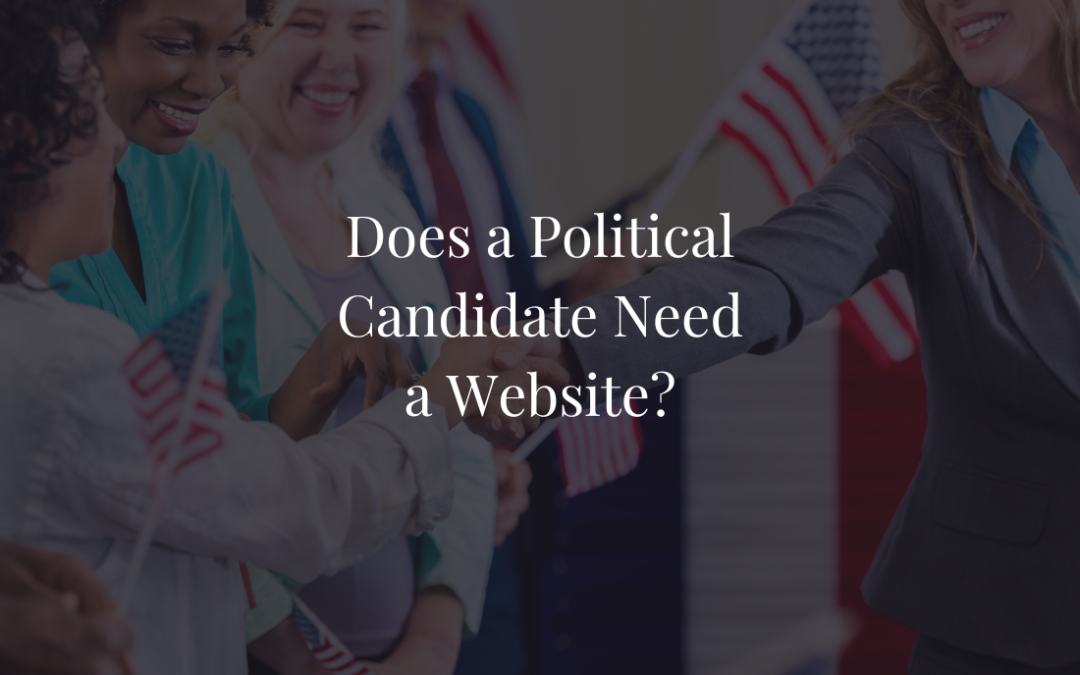In today’s digital age, having a strong online presence is crucial for anyone running for political office. As campaigns become more sophisticated, the need for a comprehensive and accessible platform to communicate with voters grows. Here’s why a political candidate needs a website to run for office effectively and how it can significantly impact their campaign.
1. Establishing Credibility and Professionalism
First and foremost, a political candidate needs a website to establish credibility and professionalism. When voters research candidates, a well-designed website can provide an immediate sense of legitimacy. It shows that the candidate is serious about their campaign and is invested in reaching out to the electorate.
Moreover, a website allows candidates to present their biography, qualifications, and vision in a controlled environment. This ensures that the information is accurate and presented in the best possible light. Without a website, candidates risk leaving their public image in the hands of social media or third-party sites, which may not always be accurate or flattering.
For incumbents, a website that includes a constituent services page shows voters that you take them seriously and are proactively working to solve their problems effectively.
2. Engaging with Voters
A key reason why a political candidate needs a website is to engage directly with voters. Through features like blogs, newsletters, and social media integration, candidates can keep the public informed about their platform and upcoming events. This ongoing engagement is crucial for building a loyal supporter base.
In addition, websites can include FAQ sections where voters can find helpful answers to their questions. Although it requires regular monitoring and maintenance, hosting a Q&A section provides voters with direct answers. This interaction helps to humanize the candidate, making them more relatable and approachable. It also provides a platform for candidates to address voter concerns and feedback, demonstrating their willingness to listen and adapt.
Furthermore, a website is required to purchase campaign ads for social media platforms. Being able to reach potential voters where they are is vital in a contested political race. With virtually everyone being on social media at some point in their day, a serious candidate simply must run digital ads and a website is a must to do that.
3. Fundraising Capabilities
Fundraising is a critical component of any political campaign. Therefore, a political candidate needs a website to facilitate donations. Online fundraising tools integrated into the website can make it easy for supporters to contribute. These tools can include secure donation forms and recurring donation options.
A website also allows candidates to run targeted fundraising campaigns and track their progress. With detailed analytics, candidates can see which strategies are most effective and adjust their approach accordingly. This level of control and flexibility is only possible through a dedicated campaign website.
4. Providing Detailed Information
When running for office, it’s essential to provide voters with detailed information about policies and positions. A political candidate needs a website to serve as a comprehensive resource for this purpose. Unlike social media posts or brief news articles, a website can host in-depth content that fully explains the candidate’s stance on various issues.
Furthermore, this information can be organized in a user-friendly manner, making it easy for voters to find what they are looking for. This transparency helps build trust with the electorate, as voters feel informed and confident in the candidate’s abilities and intentions.
5. Enhancing Visibility
In the crowded field of political campaigns, standing out is crucial. A political candidate needs a website to enhance their visibility. Search engine optimization (SEO) techniques can be used to ensure that the candidate’s website appears prominently in search engine results. This increased visibility can drive more traffic to the site and attract potential supporters who might not have otherwise learned about the candidate.
Additionally, a website provides a central hub for all campaign-related activities. Media coverage, press releases, and endorsements can all be showcased on the site, amplifying the candidate’s reach. Social media channels can link back to the website, driving further traffic and engagement.
6. Mobilizing Volunteers
Volunteers are the backbone of any successful campaign. A political candidate needs a website to effectively mobilize and manage volunteers. Through the website, candidates can post volunteer opportunities, schedule events, and communicate with their volunteer base. Online sign-up forms and volunteer portals streamline the process, making it easy for supporters to get involved.
Moreover, a website can provide training materials and resources for volunteers, ensuring they are well-prepared for their roles. This level of organization can significantly boost the efficiency and impact of the campaign’s grassroots efforts.
7. Building a Digital Archive
Campaigns generate a vast amount of content, from speeches and debates to news coverage and endorsements. A political candidate needs a website to serve as a digital archive for this content. By storing these materials on the website, candidates create a lasting record of their campaign that can be referenced and utilized in the future.
This archive can also be a valuable resource for voters, journalists, and researchers looking to learn more about the candidate and their campaign history. It ensures that all information is preserved and accessible long after the campaign has ended.
As a practical example, we’ve observed several instances where a political candidate was introduced at a speaking engagement using the biography from their website word-for-word. When you use your website to put your chosen information on the internet, you are much more likely to be happy with the information others share about you.
Summary: Why a political candidate needs a website to run for office
- Establish credibility and professionalism
- Engage with voters
- Fundraising capabilities
- Provide detailed information
- Enhance online visibility
- Mobilize volunteers
- Build a digital archive
A Wellness Check for an Existing Candidate Website
Do you already have a website for your campaign? Use these questions to determine if your website designer used best practices so that you can effectively reach your potential voters online? If not, we’d love to help you fix that!
- Establishing Credibility and Professionalism:
- Does the website have a professional design and layout? Is it consistently on-brand?
- Is there a detailed biography and clear presentation of the candidate’s qualifications and vision?
- Engaging with Voters:
- Are there blogs, newsletters, or social media integrations for ongoing communication?
- Does the site include interactive elements like forums, Q&A, or FAQ sections?
- Fundraising Capabilities:
- Is there an easy-to-use and secure donation process?
- Are there tools for tracking fundraising progress?
- Providing Detailed Information:
- Does the website offer comprehensive information about the candidate’s policies and positions?
- Is the information well-organized and easily accessible?
- Enhancing Visibility:
- Is the website optimized for search engines (SEO)?
- Does it serve as a hub for media coverage and press releases?
- Mobilizing Volunteers:
- Are there clear calls to action for volunteering?
- Does the site provide tools for volunteer sign-ups and event management?
- Building a Digital Archive:
- Is there a section for storing campaign content, speeches, and news coverage?
- Is this information accessible and well-maintained?
Conclusion
In conclusion, a political candidate needs a website for numerous reasons. From establishing credibility and engaging with voters to facilitating fundraising and mobilizing volunteers, a well-designed website is an indispensable tool in modern political campaigns. It provides a central platform for communication, information, and organization, ensuring that the candidate can reach their full potential and connect with the electorate in meaningful ways. As the digital landscape continues to evolve, the importance of a strong online presence will only grow, making a campaign website a vital asset for any political candidate.
If you are a political candidate or you represent one, we at Cardinalis would love to build an effective website for your campaign. Get in touch! We’ll discuss your needs and get a quote to you in just a couple of days.

